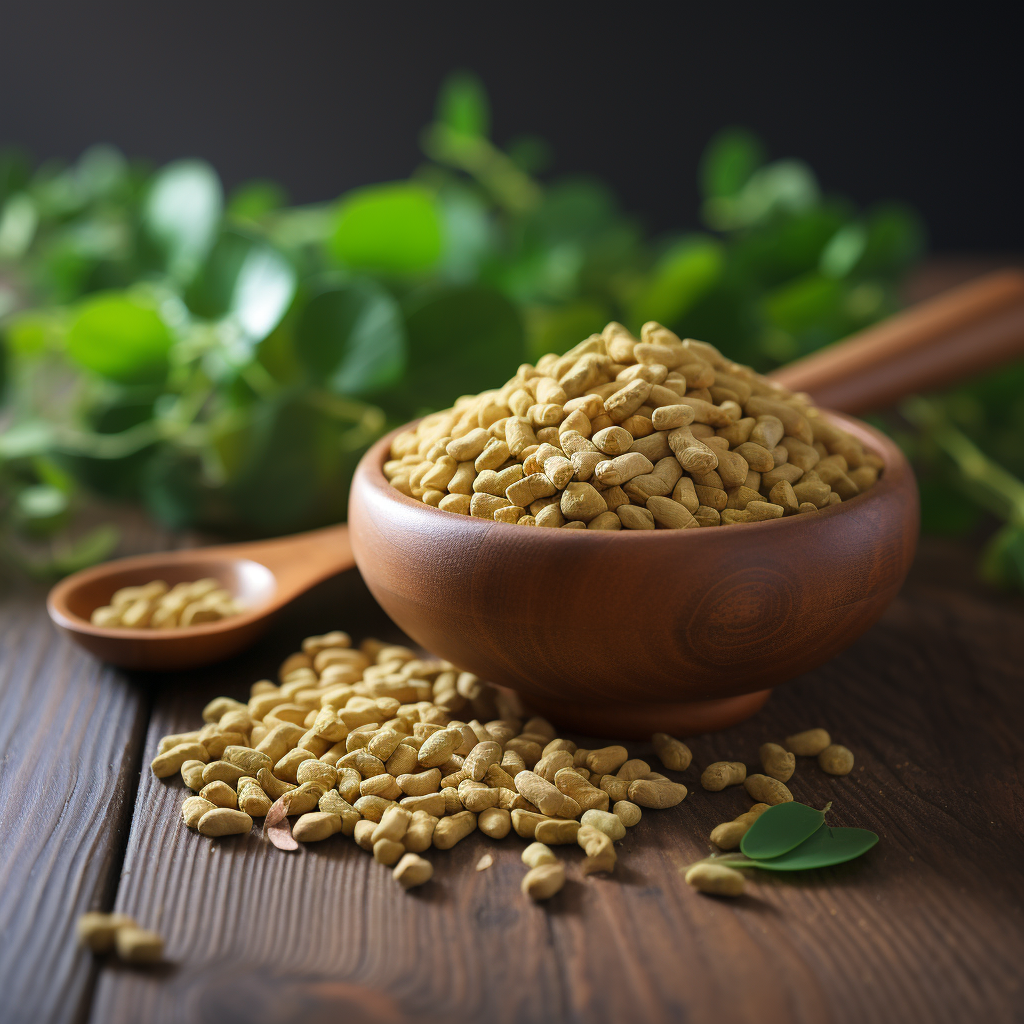
Fenugreek and Its Role in Testosterone Enhancement: An In-Depth Analysis
Fenugreek, a herb renowned for its versatile medicinal properties, has recently garnered significant attention for its potential to augment testosterone levels. Delving deep into its history and its present significance, this article offers a comprehensive understanding of fenugreek's potential in elevating testosterone naturally.

Fenugreek: A Historical Overview
Fenugreek (Trigonella foenum-groecum L.) traces its origins to the fertile regions of India and North Africa. With global consumption patterns expanding, fenugreek has found a place in diverse culinary and medicinal practices. Not just a mere ingredient in cuisines, especially Indian dishes, its historical applications ranged from alleviating digestive maladies to treating skin afflictions. Ancient Roman texts cite its use for alleviating labor pains in pregnant women, while traditional Chinese medicine credits it with treating leg debilities and edema.

Chemical Constituents and Their Health Implications
An aromatic plant, fenugreek is characterized by a taste palette encompassing nutty, sweet, and slightly bitter tones. This unique taste is attributed to the presence of potent compounds that confer therapeutic qualities upon the plant. Specifically, fenugreek seeds house a wealth of saponins and coumarins. These phytochemicals are celebrated for their myriad health benefits, notably in regulating blood sugar and cholesterol dynamics.

Fenugreek and Testosterone: A Potent Correlation?
As testosterone is paramount in dictating diverse physiological processes like sexual function, energy dynamics, and cognitive prowess in both genders, its regulation is crucial. Testosterone levels naturally recede with age, and health impediments like diabetes and obesity can prematurely depress its levels.
Recent scientific endeavors have turned to fenugreek for its potential testosterone-augmenting effects. Encapsulating this potential are the furostanolic saponins in fenugreek. Evidence suggests a positive correlation between fenugreek intake and heightened testosterone. A notable study involving 49 athletic men observed a rise in testosterone levels upon daily intake of 500 mg of fenugreek for 8 weeks. A subsequent study accentuated the role of protodioscin, a fenugreek saponin, in amplifying testosterone levels.
However, the scientific community remains divided. Some studies dispute fenugreek's role in testosterone enhancement, calling for more rigorous research. Notably, certain investigations endorsing fenugreek's efficacy were backed by fenugreek product stakeholders, raising concerns of bias.

Beyond Testosterone: Fenugreek's Multifaceted Health Benefits
Fenugreek's therapeutic potential isn't confined to testosterone regulation. Its spectrum of health benefits includes:
-
Lactation Augmentation: Some studies observed fenugreek's efficacy in enhancing breast milk production.
-
Blood Sugar Regulation: Fenugreek supplements have demonstrated potential in stabilizing blood sugar dynamics in diabetics.
-
Anti-inflammatory Potency: The flavonoid antioxidants in fenugreek seeds exhibit anti-inflammatory actions, possibly ameliorating conditions like asthma.
-
Cholesterol Management: Individuals with prediabetes and type 2 diabetes witnessed cholesterol reduction upon fenugreek supplementation.
-
Anticancer Potential: Preliminary studies hint at fenugreek extract's capability to neutralize certain cancer cell lines.

Natural Interventions for Testosterone Augmentation
While fenugreek's role in testosterone regulation is still under scientific scrutiny, there are established strategies to counteract dwindling testosterone:
-
Weight Management: Shedding excess weight can potentially restore testosterone levels.
-
Physical Activity: HIIT exercises, in particular, can rejuvenate testosterone dynamics in aging males.
-
Nutritional Intake: A balanced diet, replete with protein, healthy fats, and micronutrients, can facilitate testosterone synthesis.
-
Optimal Sleep: Ensuring 7–9 hours of restorative sleep nightly can preserve testosterone levels.
For those exploring fenugreek for testosterone enhancement, it is imperative to liaise with a healthcare practitioner to ensure safety and appropriateness.

Frequently Asked Questions
Q1: What is fenugreek and where does it originate from?
Fenugreek (Trigonella foenum-groecum L.) is a herb that traces its origins to the fertile regions of India and North Africa. It's renowned for its versatile medicinal properties.
Q2: What are some historical applications of fenugreek?
Historically, fenugreek has been used for various purposes such as alleviating digestive maladies, treating skin afflictions, easing labor pains in pregnant women according to Ancient Roman texts, and addressing leg debilities and edema in traditional Chinese medicine.
Q3: What specific compounds in fenugreek are linked to its potential testosterone-augmenting effects?
The furostanolic saponins in fenugreek, particularly protodioscin, have shown a positive correlation with heightened testosterone levels.
Q4: Are there any concerns regarding the studies endorsing fenugreek's efficacy in enhancing testosterone?
Yes, some studies endorsing fenugreek's role in testosterone enhancement were backed by fenugreek product stakeholders, leading to concerns about potential bias. The scientific community remains divided on this matter.
Q5: Beyond testosterone regulation, what other health benefits does fenugreek offer?
Fenugreek has a spectrum of health benefits including lactation augmentation, blood sugar regulation, anti-inflammatory properties, cholesterol management, and potential anticancer effects.
In summation, fenugreek, with its storied history and myriad health benefits, presents an intriguing option for those seeking to elevate testosterone naturally. However, as with any supplement, it is essential to be guided by evidence-based insights and expert recommendations.

Referances
- NIH Nation Library of Medicine Pub Med - Fenugreek trigonell foenum
- NIH Nation Library of Medicine Pub Med - Fenugreek a multipurpose crop
Disclaimer
The information provided in this blog is for educational purposes only and is not intended as medical advice. In Australia, it's essential to consult with a registered healthcare practitioner before making any decisions regarding supplements or treatments. Individual results may vary, and the efficacy of fenugreek in testosterone regulation remains under scientific scrutiny. Always prioritize evidence-based insights and expert recommendations when considering any health intervention.


Leave a comment